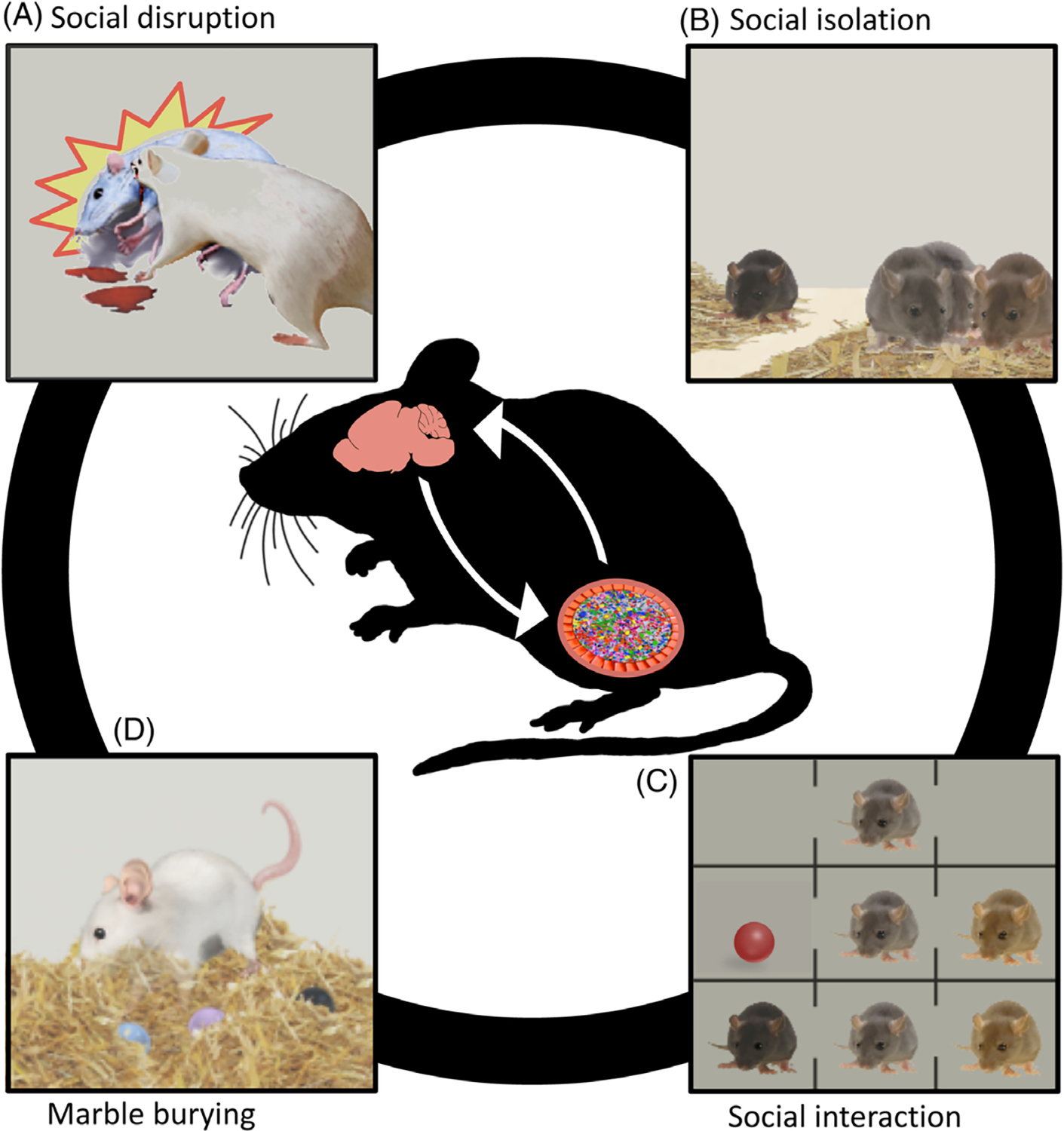Fig. 3.

Microbial associations with rodent social behaviour. A range of studies shows that rodent social behaviour is influenced by the microbiome. (A, B) Microbial profiles rapidly shift in response to the social environment, including social defeat stress and social isolation, providing evidence of how the social environment affects the microbiome via the hypothalamic–pituitary–adrenal (HPA) axis. (C) Rodent sociability and social cognition can be influenced by manipulation of the microbiome. In the three-chamber test shown here, the mouse is sequentially exposed to two conditions after habituation (first row). This test measures preferences for social interaction and social novelty. Preference for social interaction is indexed by choosing to interact with a novel conspecific over a novel object (second row). Preference for social novelty is indexed by choosing to interact with a novel mouse over the familiar mouse from the previous phase (third row). Some of the social deficits can be mitigated with probiotic treatment. (D) Disrupting the microbiome can trigger rigid behavioural patterns that are thought to reflect autistic phenotypes such as repetitive behaviour (indexed by marble-burying tendencies), which can be mitigated with probiotic treatment.
